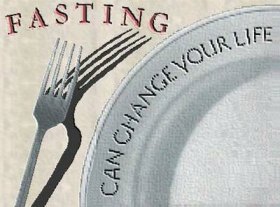
Courtesy of gisnik.blogspot.com
Scripture: Isaiah 58:1-4
What do you need to know about fasting? It’s all in your approach. Bishop Pendleton takes a look at the wrong and right approach to fasting, and the results.
Notes:
-Fasting brings us to a place where we can receive God.
-Fasting with the wrong motives will bring undesirable effects.
-There is a blessing in your fast.
-Fasting is an individual thing that you have to do for yourself to get the results that you want.
-Israel was fasting for the wrong reasons and motives. God couldn’t answer them without a rebuke. Back then He rebuked the nation; now He rebukes the individual.
-The Israelites fasted for appearance sake, but Jesus admonished us to anoint our heads and wash our faces (“Don’t go walking around with an oil spot on your forehead as a telltale sign of your fast”). See
Matthew 6:16.
-Don’t broadcast your fast for vain glory. Go to work the way you always go, with the same attitude and countenance.
-What makes us strong is when we can maintain and develop a relationship with God. That’s where we find ourselves seeking God.
-Some things come by fasting and prayer.
-Don’t be surprised; problems are going to arise.
-If you fast the way God wants then you will reap positive results.
-Don’t be afraid of His rebuke. Be glad about it. It will help you.
Q&A: (Questions from those in attendance.)
Q: Is there such a thing as a Daniel fast?
A: The bible doesn’t say that Daniel fasted. Bishop described the change in diet as an “adjustment” that changed Daniel’s countenance. “I don’t believe Daniel fasted, but you can call it what you want.”
Q: What is Lent?
A: Today many faiths observe Ash Wednesday, which marks the beginning of the 40-day season of Lent. During Lent, observers fast in preparation for the Holy Week and Easter. We don’t practice Lent, but we do fast regularly and are consecrating ourselves in the time leading up to Easter (Resurrection Sunday). (more…)


